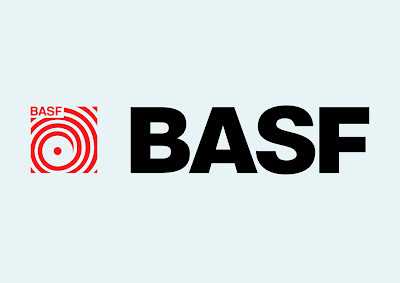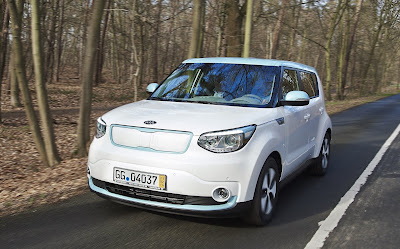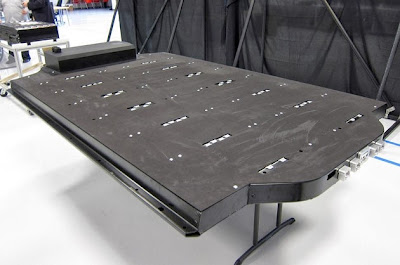Panasonic Corp is inviting a number of Japanese materials suppliers to join it in investing in a U.S. car battery plant that it plans to build with Tesla Motors, with investment expected to reach more than 100 billion yen, the Nikkei reported.
Tesla shares also hit an all-time high on Tuesday after one brokerage firm set a new target price that suggested shares would rise almost 50 percent from Monday's closing price.
The plant, expected to go on-stream in 2017, will bolster Panasonic's supply of lithium-ion batteries to the U.S. electric-car maker.
Last week, Tesla shed some light on its plans for building a lithium-ion battery plant, or "giga factory," that will cut battery costs and allow the company to launch a more affordable electric car in 2017. However, it said at the time that further details would be announced this week.
Tesla declined to comment on Tuesday. Panasonic, the carmaker's primary supplier of lithium-ion batteries, could not immediately be reached for comment.
The U.S. plant, which will handle everything from processing raw materials to assembly, will produce small, lightweight batteries for Tesla and may also supply Toyota Motor Corp and other automakers, the Nikkei said.
In Tesla's earnings conference call last week, Chief Executive Elon Musk said the electric car maker expects to build the factory with more than one partner, but a "default assumption" was that Panasonic, as a current battery cell partner, "would continue to partner with us in the giga factory."
"The factory is really there to support the volume of the third generation car," Musk said on the call. "We want to have the vehicle engineering and tooling come to fruition the same time as the giga factory. It is already part of one strategy, one combined effort."
Tesla posted better-than-expected fourth-quarter results and said deliveries of its luxury Model S electric sedan would surge more than 55 percent this year to more than 35,000 vehicles.
Shares in the Palo Alto, California-based company, which was founded in 2003, surged as much as 19 percent on Tuesday, hitting a new all-time high intraday trading price of $259.20 a share after Morgan Stanley raised its target price for the stock to $320 a share from $153.
Tesla shares were still up $30.50, or 14 percent, at $248.15 in afternoon trading on the Nasdaq.
Morgan Stanley analyst Adam Jonas said in his research note that the potential for lower battery costs through higher sales volume could nearly double Tesla's share of the global car market to 0.9 percent by 2028. Tesla remains the firm's top pick in the U.S. auto sector with an "overweight" rating.
"Tesla is an extremely ambitious company for whom flooding the market with fun-to-drive EVs and giving competitors a headache might not be the endgame," he said.
Stifel analyst James Albertine said the giga factory could be far more than an auto opportunity, as Tesla could have an even more significant opportunity to supply the energy storage market. He expects the factory would take two to three years to build and require a $5 billion to $6 billion capital infusion.
"While we remain negative on Tesla shares above $200 as an automotive OEM (original equipment manufacturer), the energy storage opportunity requires a broader perspective and could very well justify current, if not higher valuation levels," he said in a research note.


.jpg)





